London-based restaurant owner, cookbook author, and chef Yotam Ottolenghi isn’t exactly what you’d call a celebrity chef. He doesn’t have his own cooking show and you won’t find his food anywhere outside of London. Yet over the years, he’s been at the forefront of revolutionizing the culinary scene, recipe by recipe.
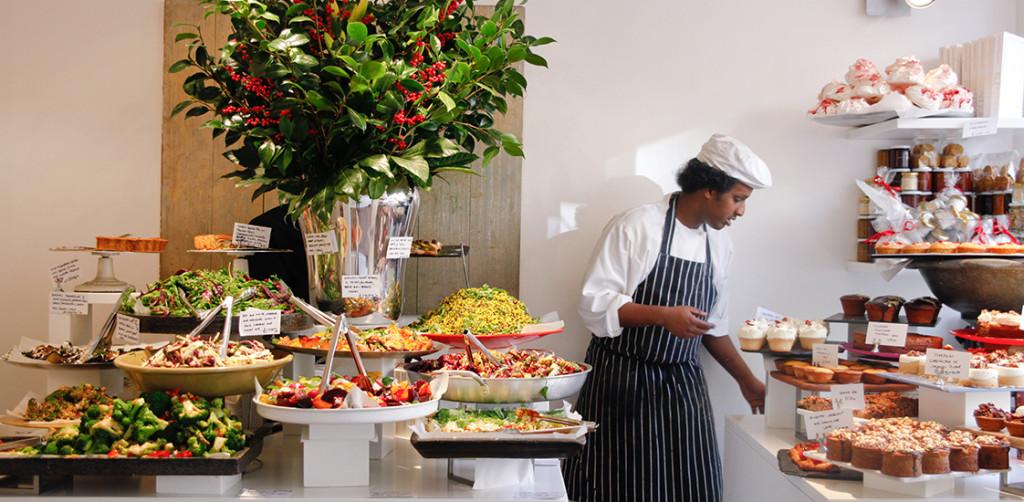
Photo courtesy of ottolenghi.co.uk
For those of you who don’t know him, Yotam launched the Ottolenghi enterprise in 2002, when he opened his first deli in downtown London. A native of Israel, the deli introduced a brand new cuisine to the urban food scene. The flavors created in his kitchen were so remarkable that Ottolenghi quickly became one of the most talked about restaurants in England. Recently, he’s been promoting his new cookbook, Nopi, across the United States alongside head chef at Nopi restaurant, Ramael Scully.
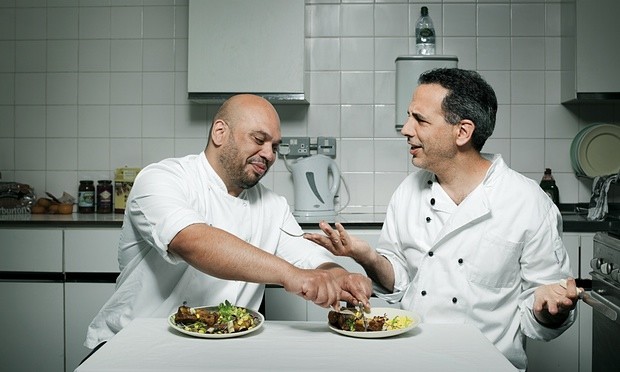
Photo courtesy of theguardian.com
I know what you might be thinking: Why does this guy even matter to a college student like me? Besides his restaurant Nopi, which is a little more upscale, his delis and recipes are changing what “fast food” and vegetable-based cooking means to us. He’s big on flavor but pretty lax about technique.
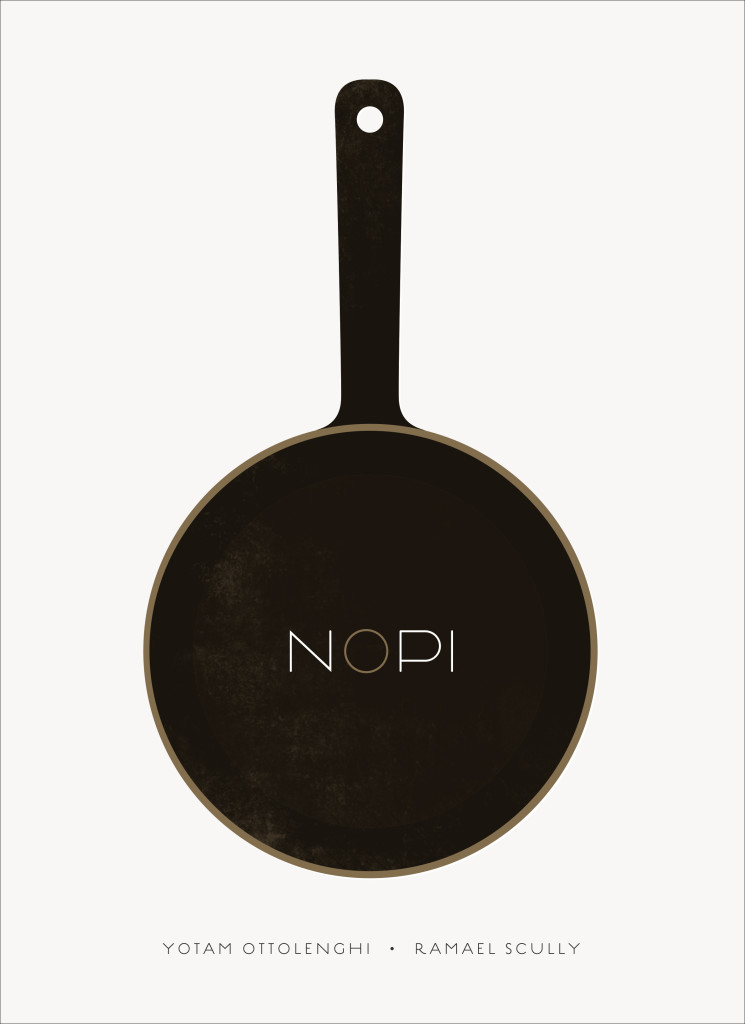
Photo courtesy of amazon.com
Yotam was kind enough to share his words of wisdom with Spoon. Here are a few things he had to say about veggies, Instagram, and even the beauty of ramen:
Spoon: Spoon University is a community committed to entertaining and enhancing the culinary creativity of young individuals nationwide. As college students, we’re all about creating new flavors, as long as we can keep it simple. What are some of your easiest yet most interesting recipes you could recommend?
YO: There are lots of cheap vegetables you can just roast whole for a few hours, in a low oven, with remarkable results. The cooking time may be long – 2 or 3 hours or more, but the effort is minimal and the technique literally couldn’t be simpler. Take a whole large celeriac, for example, and rub it all over with a tablespoon of oil and some coarse sea salt. Into a 170C oven for 3 hours and then just slice into wedges and serve, with another pinch of salt and a small drizzle of oil.
White cabbage also works very well for this long cooking: just slice it into 5 centimetre-wide wedges and spread out on a roasting tray. Heat together 300 milliliters of chicken stock with 2 tablespoon brown miso and then pour this over the cabbage in the tray. Cover the tin with foil and roast in a 200C oven for 2 hours, turning it over half way through. Cook for another hour and a half without the foil, until almost all of the liquid has been absorbed and then just serve with a bowl of soured cream to dip the wedges in to and a squeeze of lemon.
Spoon: Speaking of easy, how would you prepare your eggs? Any tips on elevating a simple egg dish?
YO: My favorite egg dish is Shakshuka: a North African dish of braised eggs in a flavoursome, aromatic tomato and red pepper sauce. It’s really convenient to make as you can prepare the sauce in advance – the day before, if you like – to have at the ready to just add your eggs when you are ready to eat. It’s also great as there are lots of ways to vary it depending on what you have to hand – adding preserved lemon, harissa paste, olives, salty cheese or a spicy sausage to the sauce all work well. All it needs alongside is a nice chunk of bread and you’re all set.
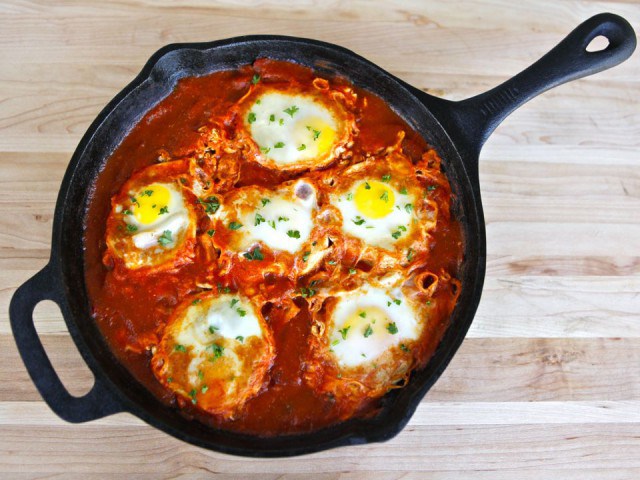
Photo courtesy of campariandsofa.com
Spoon: You use Instagram just like us to share your food. How do you think Instagram affects how we see food?
YO: It means that we see a lot more of it! I don’t mind it at all, really: People take great pleasure from making something that looks great – it’s really satisfying to make something and have that ‘ta da’ moment – and then share it out.
Spoon: What about food-based blogs? Do those add or take away from the development of a broader, more creative cooking movement?
YO: They absolutely add to it. People only write and read food-based blogs if they are full of ideas and excitement and energy for food, which can only be a good thing. I’m always amazed by the time people take to document and share their eating and cooking experiences with others. I love it.
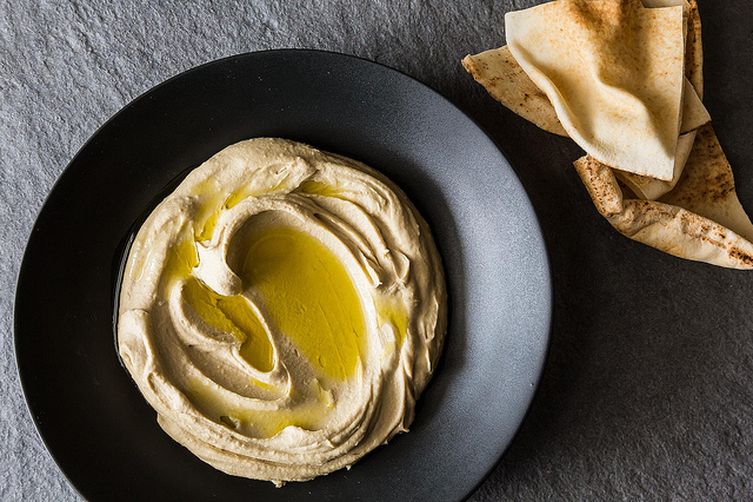
Photo courtesy of food52.com
Spoon: I understand you were once a former university student yourself. Did you have a particular favorite meal that you loved to make? Was there a drink in particular you enjoyed as a twenty-something?
YO: When I was doing my masters in Amsterdam, I got seriously into the making and eating of croquettes. They went well with the local beer.
Spoon: In terms of college-level gourmet, are there any meals you’ve made in a microwave that you’ve enjoyed?
YO: Microwave-cooked Asian instant pot noodles were my guilty pleasure (and, secretly, sometimes still are).
Spoon: If you were still at university, how would you make the most of dining hall food?
YO: If there’s something I could keep in my jacket pocket to sprinkle over anything to make it taste good it would be a dukkah, the Egyptian condiment made up of roasted nuts, seeds and spices. I’d make batches of my own — roasted hazelnuts and sunflower seeds, sesame seeds, coriander, cumin, fennel, nigella seeds, green peppercorns and ground cayenne — and have to hand to elevate all sorts of simple dishes — roasted vegetables, pulses, scrambled eggs and leafy salads, simple fish or meat — to something special.
Spoon: One final question: according to your co-chef, you love Greek yogurt, which really is a staple in a lot of our diets. Are there any toppings in particular that really take it from an inexpensive, simple snack to something special?
YO: Date molasses, tahini, toasted seeds and nuts.
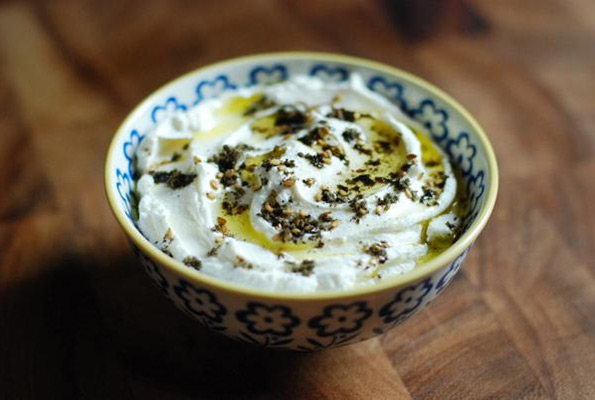
Photo courtesy of self.com
So take Chef Yotam’s advice; the dorm basement kitchen really can be your blank canvas. And if you need some inspiration, eat some ramen. It really does fuel even the greatest culinary minds.




